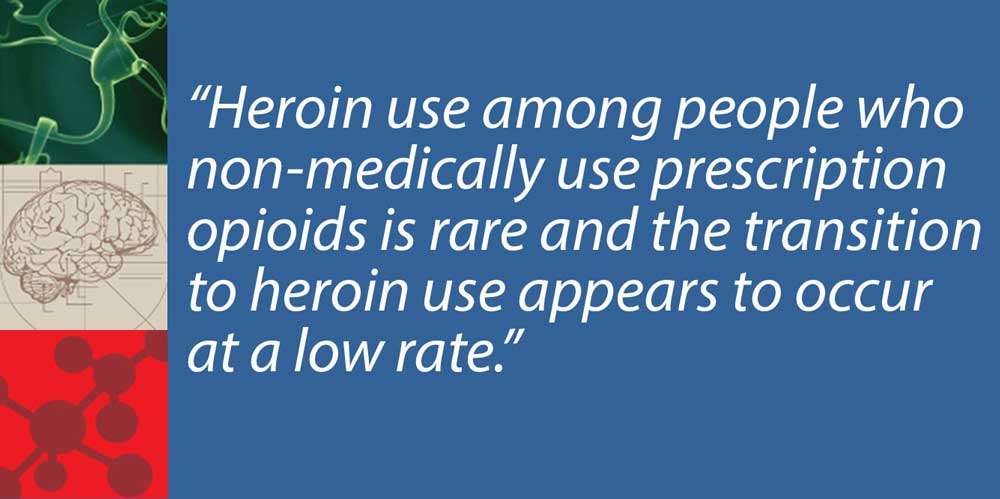
A new scientific review suggests that federal and state policies aimed at curbing inappropriate prescribing of opioids have not directly led to the recent increases in heroin use across the nation. Researchers conducting an analysis of the relationship between prescription opioid and heroin abuse found that the transition to heroin use occurred before many policies, including public education efforts, prescription drug monitoring programs, increased enforcement and regulatory actions, and abuse-deterrent formulations, were enacted.
People who use prescription opioids non-medically (e.g., use them without a prescription) rarely use heroin, and the transition to heroin use appears to occur at a low rate. Alternatively, the researchers suggest that the increased accessibility, lower market price and high purity of heroin appear to be major drivers of the recent heroin use increases and related deaths. The authors emphasize the need for improved approaches to treat opioid addiction, including medication-assisted treatments, continuing prevention and education efforts, as well as expanded access to naloxone to prevent overdose.
For a copy of the article, published in the New England Journal of Medicine, and authored by Dr. Wilson M. Compton, M.D., deputy director at the National Institute on Drug Abuse, and scientists from the Food and Drug Administration and the Centers for Disease Control and Prevention, go to http://www.nejm.org/doi/full/10.1056/NEJMra1508490.
To learn more about heroin, go to: https://www.drugabuse.gov/drug-topics/heroin. To learn more about prescription drugs, go to: https://www.drugabuse.gov/drug-topics/over-counter-medicines.
For more information, contact the NIDA press office at media@nida.nih.gov or 301-443-6245.
